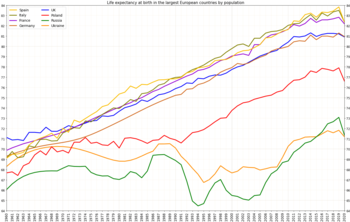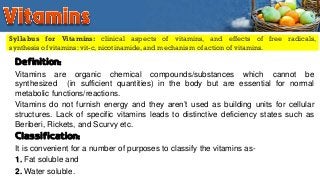
There are many things you should consider when designing a healthy diet. Some people overindulge but most people should only eat the recommended portions. A serving is typically the size of a fist, or your smartphone. Fresh fruits or vegetables should be the main focus of your plate. Try to have a colorful plate so that you can see the various types of nutrients in each food.
Keep calories low and eat enough vegetables. Eating too much sugar may result in a variety of health problems. A good diet plan will help you get all the nutrients that you need and help to lose weight in a safe manner. By consuming fruits and vegetables, you will increase your energy levels and fight disease. If you eat a healthy diet, you will feel better and have more energy.

For sticking to a diet, meal planning is vital. Meal preparation will allow you to manage the ingredients and portions of your meals. This will help you to eat less during the day. You can plan ahead and prepare easy meals and snacks. You can also use meal preparation logs to track your food intake. It won't take much time to prepare the food and it will be ready when you need it.
To lose weight, you need to burn more calories than your body absorbs. Finding a diet plan that is healthy and fits your lifestyle is key to weight loss. The best plans allow you to adjust your daily calorie intake to fit your exercise routine. You can adapt the best plans to fit your lifestyle without making major lifestyle changes. It is important that you can follow the plans easily and enjoy their results.
It is important to create a healthy diet plan to lose weight or gain weight. Your diet should include plenty of fruits, vegetables, and other healthy foods. This will help you lose weight, and also increase your energy. Your diet will be more effective if you eat more nutrients. If you include healthy eating habits into your daily life, it will be easier to keep a healthy diet. You will feel great and shed fat if you eat right and do the exercise.

The main focus of a healthy diet plan is to make a shopping list that includes a variety of nutritious foods. It is important to plan what you will buy and how you will prepare the menu. A shopping list can be used to plan a meal and prevent impulse purchases of unhealthy foods. This will help you to stay on track and prevent yourself from slipping back into a poor eating habit.
FAQ
What's the difference of a calorie versus a Kilocalorie?
Calories are units used to measure the amount of energy in food. Calories are the unit of measurement. One calorie equals one degree Celsius of energy to raise water temperature by 1 gram.
Kilocalories refer to calories in another term. Kilocalories measure in thousandths a calorie. For example, 1000 calories equals one kilocalorie.
How do I get enough vitamins?
The majority of your daily needs can be met through diet alone. Supplements may be necessary if you are not getting enough of a particular vitamin. You can take a multivitamin supplement that contains all the vitamins you need. You can also get individual vitamins from your local pharmacy.
Talk to your doctor about the best foods for vitamins if you're concerned about not getting enough nutrients. Dark green leafy vegetables like spinach, broccoli and kale, as well as turnip greens and mustard greens such as turnip and mustard greens and bok choy, are rich in vitamins K & E.
Ask your doctor if there is any doubt about how much vitamin you should be taking. Based on your medical history, and your current health status, your doctor will recommend the right dosage.
Exercise: Good or Bad for Immunity?
Your immune system is strengthened by exercise. When you exercise, your body produces white blood cells which fight off infections. Your body also removes toxins. Exercise can prevent diseases such as cancer and heart disease. Exercise can help reduce stress.
Exercising too often can cause your immune system to be weaker. Your muscles can become sore if you exercise too much. This can cause inflammation as well as swelling. Your body will then produce more antibodies in order to fight infections. This can lead to allergic reactions and other autoimmune disorders.
So, don't overdo it!
What are the 7 tips to have a healthy life?
-
Take care of your health
-
Exercise regularly
-
Good sleep
-
Drink lots of water
-
Get adequate rest
-
Be happy
-
Smile often.
Statistics
- In both adults and children, the intake of free sugars should be reduced to less than 10% of total energy intake. (who.int)
- According to the 2020 Dietary Guidelines for Americans, a balanced diet high in fruits and vegetables, lean protein, low-fat dairy and whole grains is needed for optimal energy. (mayoclinichealthsystem.org)
- This article received 11 testimonials and 86% of readers who voted found it helpful, earning it our reader-approved status. (wikihow.com)
- nutrients.[17]X Research sourceWhole grains to try include: 100% whole wheat pasta and bread, brown rice, whole grain oats, farro, millet, quinoa, and barley. (wikihow.com)
External Links
How To
27 steps to a healthy lifestyle if your family only eats junk food
Cooking at home is the most popular way to eat healthier. However, many people are not skilled in preparing healthy meals. This article will help you make healthier choices while dining out.
-
Select restaurants that offer healthy dishes.
-
Before ordering any meat dishes, order vegetables and salads.
-
Ask for sauces without added sugar.
-
Avoid fried foods.
-
Instead of ordering fried meats, request grilled meats.
-
Order dessert only if you absolutely need it.
-
Be sure to have something other than dinner.
-
Always eat slowly and chew your food thoroughly.
-
Get plenty of water when you eat.
-
Do not skip breakfast, lunch or dinner.
-
Take fruit and vegetables along with every meal.
-
Use milk, not soda.
-
Try to avoid sugary drinks.
-
Limit salt consumption in your diet.
-
Try to limit your frequent visits to fast-food restaurants.
-
Ask someone to join if temptation is too much.
-
You should not allow your kids to watch too many TV programs.
-
Do not turn on the television while you eat.
-
Avoid energy drinks
-
Regular breaks from work
-
Get up at a reasonable hour and do some exercise.
-
Exercise everyday.
-
Start small and then build up slowly.
-
Set realistic goals.
-
Be patient.
-
Exercise even if it's not your favorite thing to do.
-
Positive thinking is important.